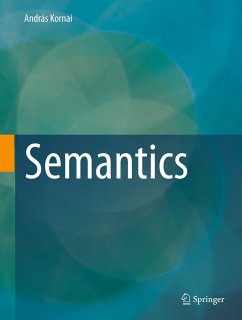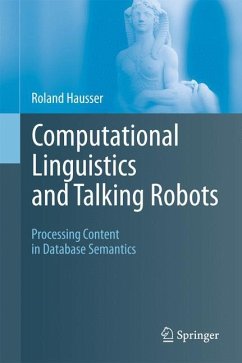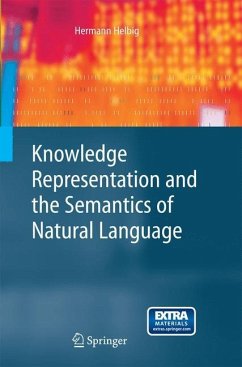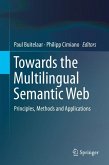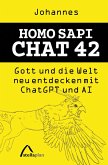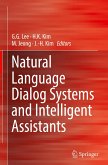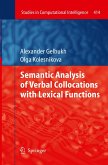The focus of this textbook is the meaning of linguistic expressions, typically full sentences and longer texts. The author describes the conceptual and formal tools required for building semantic systems capable of understanding text, both for specific tasks such as information extraction and question answering and for broad undertakings such as the Semantic Web. The goal here is to present the fundamental ideas that working systems rest on, and this book is aimed primarily at Computer Science or Engineering students interested in developing semantic systems. The ideal reader is a hacker , a person who delights in having an intimate understanding of the internal workings of a system.
"This ambitious book presents a fresh, innovative approach to a traditional set of problems, the problems involving meaning in language. It is firmly anchored in the extensive literature on these problems. The exposition is mathematically rigorous but clearly written and accessible to the nonmathematical reader. I highly recommend this book for anyone working in or wanting to work in natural language semantics." [Jerry R. Hobbs, University of Southern California]
"This textbook distinguishes itself from other books on semantics by its interdisciplinarity: it presents the perspectives of linguistics, computer science, philosophy and cognitive science. I expect big changes in the field in coming years, so that a broad coverage of foundations is the right approach to equipping students with the knowledge they need to tackle semantics now and in the future." [Hinrich Schütze, Ludwig-Maximilians-Universität (LMU) München]
"Very few people are aware of this elegant formalism of Eilenberg machines. People keep teaching presentations of finite state machines as kludgy imperative devices with tapes and reading heads instead of using relational notions. I have respect for Kornai's expertise on many topics, his sharp observations, the originality of the presentation, and its vividness." [Gérard Huet, INRIA, Institut de France, Académie des Sciences]
"This textbook distinguishes itself from other books on semantics by its interdisciplinarity: it presents the perspectives of linguistics, computer science, philosophy and cognitive science. I expect big changes in the field in coming years, so that a broad coverage of foundations is the right approach to equipping students with the knowledge they need to tackle semantics now and in the future." [Hinrich Schütze, Ludwig-Maximilians-Universität (LMU) München]
"Very few people are aware of this elegant formalism of Eilenberg machines. People keep teaching presentations of finite state machines as kludgy imperative devices with tapes and reading heads instead of using relational notions. I have respect for Kornai's expertise on many topics, his sharp observations, the originality of the presentation, and its vividness." [Gérard Huet, INRIA, Institut de France, Académie des Sciences]

